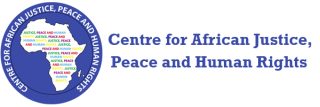What We Do
What We Do
Ancient traditional ideologies in African communities are founded on communal development. This has impacted ‘the African’ in the sense that he/she thinks of “We” rather than “I”. Therefore, to achieve Ridhika, Africans must ‘work together to grow together’. At CAJPHR, we strongly believe that growth in Africa can be achieved through widespread sensitization and capacity building. We strengthen the capacity of communities in the continent by helping them to come up with long-lasting solutions gearing towards development and Ridhika Afrika.
Through the intellectual and material contribution of individuals and organisations who have chosen to share our goals and pursue our interests, we conduct trainings, campaigns, rallies, symposiums, and town hall meetings. We distribute books and other informative materials on peace, justice and human rights. We host television and radio programmes on subjects related to our values, vision and mission. We also invite experts and practitioners from different parts of the world to Africa, to build the capacity of their contemporaries and exchange ideas on peace, justice and human rights. In general, we engage in dialogues for justice, peace and human rights in Africa.
Our Departments
SEXUAL VIOLENCE AGAINST THE MALE GENDER IN CONFLICT AND POST CONFLICT SITUATIONS
The sexual violence project aims to create awareness on sexual violence perpetrated against the male gender in conflict and post-conflict situations. The objective of the sexual violence project is to break the silence and create awareness concerning the stigma surrounding sexual violence against the male gender by conducting research, publishing articles, as well as engaging stakeholders and policymakers in conversations on the subject and advocate for legislator change in domestic jurisdictions where sexual violence against men and boys is not recognized.
We strongly believe that by conducting research as well as continuously warranting attention and discourse on a subject that has received less legal and social attention over the years would result in an exchange of best practices between international and domestic jurisdictions on conflict-related sexual violence against males – as more attention will be given to the subject.
At Centre for African Justice, Peace and Human Rights, our sexual violence project is divided into 3 main divisions:
- Annual Conference (AC)
- Research and Database Project (RDP)
- Legal Writing and Publication Project (LWPP)
ANNUAL CONFERENCE (AC)
Centre for African Justice, Peace and Human Rights organizes annual conferences on sexual violence perpetrated against the male gender. The Conference invite resource persons from various backgrounds that engage in issues concerning sexual violence against males. This includes judges, legislators, prosecutors, defence attorneys, academics, psychologists, NGOs, religious organisations, as well as law students, amongst others. Victims also occasionally participate by sharing their experiences at the conference, with some preferring to remain anonymous than others.
The Conference aims to:
1. Create evidence of the existence of male sexual violence.
2. Invite resource persons and encourage further academic research on sexual violence against men and boys.
3. Facilitate a platform for the exchange of best practices between the prosecution of sexual violence in Domestic Law and International Law.
4. Raise awareness of the issue through campaigns to empowerment and support male victims.
RESEARCH AND DATABASE PROJECT (RDP)
The Research and Database Project provides resources on sexual violence against the male gender in International Law and Domestic Law. RDP aims to create a comprehensive database which contains laws of African countries pertaining to sexual violence against the male gender in particular. The Database will consist of information regarding existing legislation, statutory instruments, decided cases, books and articles on sexual violence in the region of focus. The Database will also include procedures on reporting, investigating and prosecuting sexual violence in the jurisdictions mentioned above; which will be continuously updated in line with recent jurisdictional legal developments.
The Database will create a one-stop research point with information concerning both past and present developments regarding prosecuting sexual violence in international courts and tribunals as well as African domestic courts. The Database would reveal existing gaps in legislation and policies and help researchers, as well as policymakers, formulate stronger policies on strengthening legal protection for male victims of sexual violence in conflict and post-conflict situations.
We strongly believe that sufficient resources concerning sexual violence against males will enlighten the international community and allow the stereotypical ideologies as well as the silence surrounding rape of men and other forms of sexual violence to be broken. It would also further unveil the strategies of perpetrators, encourage testimonials and reports, as well as attract more support towards victims.
RDP also aims to provide an evidentiary value of our work by publishing testimonies of male victims of sexual violence. CAJPHR has and is currently collecting testimonies of survivors of sexual violence against males. Some testimonies have already been uploaded on our website and are accessible to all. In pursuing this project, victims are given due regard to be anonymous in their testimonies, if they wish so. Victims may also directly participate through interactive skype at our events and conferences – such testimonies enable other survivors to gather the courage to speak up and learn survival techniques.
LEGAL WRITING AND PUBLICATION PROJECT (LWPP)
Research has shown that sexual violence against men and boys is primarily underreported, infrequently discussed, insufficiently researched, and inadequately documented. In many domestic jurisdictions, the gender-specific definition of rape remains in existence in line with archaic assumptions, prejudices, and stereotypes surrounding sexual violence in general and sexual violence against the male gender in particular. While some institutions, courts, and tribunals seem to have progressed or developed in terms of statutory provisions governing male sexual violence in the International Law realm, there appears to be an apparent gap in practice in terms of uniform applicability.
Currently, International Criminal Law lacks judicial precedence on male sexual violence, and responses of International Courts/Tribunals on the subject are divergent. CAJPHR finds it imperative to have sufficient and accessible literature. Forms include, but are not limited to, written articles, videos, poetry, reports, testimonies, surveys, interviews, vox populi, artistic drawing, graphic designs as well as books to encourage research and constant publication on social media and in print.
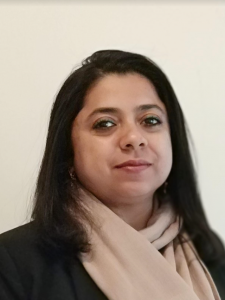
Name: Ms. Sumaiya Musharraf
Phone Number: +31 687598465
Email Address: sumaiya@
Office Address: Laan van Meerdervoort 70, 2517An The Hague, The Netherland
The Capacity Building Project in International Criminal Law (the Project) is a project that targets law students, lawyers and other criminal justice sector actors at the earliest stage of their careers; it hopes to further the interest of these actors in International Criminal Law. The Project provides judges, prosecutors, and other legal professionals with information on how they can investigate international crimes and execute justice in their domestic jurisdiction, after a gross violation of international humanitarian law.
The Project will inform criminal law professionals and law students on core principles of International Criminal Law, practices and procedures for prosecuting crimes that violate international humanitarian law, the International Criminal Court (ICC), the Rome Statute, and employment opportunities in International Criminal Law.
CAJPHR developed the Project as a response to the lack of understanding and knowledge of International Criminal Law, the International Criminal Court’s jurisdiction, the Rome Statute, and the Principle of Complementarity in domestic jurisdictions. Our Capacity Building Project offers judges, lawyers, and law students an opportunity to interact with experts in International Criminal Law.
CAJPHR has developed two approaches in which the Project will be carried out.
- Top to Bottom Approach: CAJPHR will accompany International Criminal Law experts and practitioners from international courts, academia, non-governmental organisations, and other international justice institutions in the Netherlands to African countries; where they will hold seminars, workshops, lectures and interactive sessions to share their knowledge and expertise concerning the practice of International Criminal Law.
- Bottom to Top Approach: CAJPHR hosts mid-career legal experts and other professionals working to achieve justice and ensure accountability in their home country. The Project will give them first-hand practical experience of international criminal justice in The Hague, the City of Peace and Justice. Their time in The Hague exposes participants to a global network of criminal law professionals and other experts that are working for world peace and justice and gives both actors from the African countries and the Netherlands the opportunity to share best practices and learn from each other.
RIGHT TO QUALITY EDUCATION DESCRIPTION
Right to quality education Department falls under Human Right cluster. Centre for African Justice, Peace and Human Rights (CAJPHR) and partners work with African stakeholders to provide essential school facilities for students in impoverished communities. CAJPHR’s Right to Quality Education Project (the Project) supports communities that lack the infrastructure to provide a safe education environment for their students. We help these communities build and upgrade existing school facilities so they can provide a non-violent, inclusive and effective learning environment.
CAJPHR and its partners are guided by the United Nations Sustainable Development Goal 4. More specifically we are focused on 4.A, promoting lifelong learning opportunities by “building and upgrading education facilities that are child, disability, and gender sensitive in order to provide a safe, non-violent, inclusive and effective learning environment” (UN, 2018). CAJPHR and its partners work tirelessly to reduce the dropout rate of students by ensuring they have access to the most basic facilities such as basic drinking water and basic sanitation.
WHY WE DO THIS
Children need access to a safe learning environment and a quality education. Access to a safe and secure learning environment is essential if we want to improve the standard of living for the most vulnerable in society. Any country that has a poor education system is more likely to have unacceptable social inequalities.
Despite the demand for better education services and facilities across the African continent some local and national governments struggle to provide safe non-violent inclusive learning environments. Some reasons for this include on-going conflicts, a lack of resources to build and maintain education facilities, or a lack of basic infrastructure and resource persons to provide students with basic education services.
CAJPHR believes that access to basic education is essential for the sustainable development of peoples, institutions, and resources. CAJPHR Right to Quality Education Project is way to start closing the gap between the quality and standard of education received in impoverished communities and the rest of the developing world.
TEAM Members:
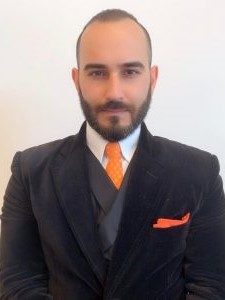
Name: Yaser Khalaj
Position: Project Manager “Right to Education Department”
Phone number: +31687968845
Email Address: Yaser@centreforafricanjustice.org
Office address: Laan van Meedervoort 70, 2517 AN, The Hague
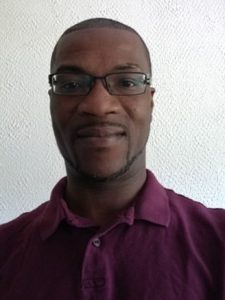
Name: Eric Simpson Osei Adomako
Position: Team Member
Email Address: Eric@centreforafricanjustice.org
Office Address: Laan van Meedervoort 70, 2517AN, The Hague
NB: Keep checking our Website for project updates and more information on our Right to Quality Education Projects.
OVERVIEW OF RIGHT TO QUALITY EDUCATION PROJECTS
2018 BENEFICIARY
COUNTRY: Nigeria
STATE: Enugu State
FINANCIAL STATUS: Funded by our partners and presently ongoing
PROJECT TITLE: Provision of Clean Water and Basic Sanitation Facilities for 700 School Children
BRIEF PROJECT DESCRIPTION
The CAJPHR project in Enugu State, Nigeria will immediately improve the learning environment for 700 children and improve the learning space for future generations.
When we arrived at the School there were four dysfunctional toilets servicing 700 children and school staff. These bathroom facilities fell into a state of disrepair because the school did not have access to a continuous source of water for cleaning and maintenance.
Our Investigations revealed that school children preferred defecating in the bushes and gardens around the school premises. The lack of clean running water and an effective sanitation system puts these children at a risk because searching for water or a suitable place to relieve themselves exposes them to dangers outside the school’s campus which include road accidents and criminal organizations that operate in the area.
CAJPHR main objective is to repair the existing water facilities and provide clean and safe bathroom facilities.
PROJECT OBJECTIVE:
The specific aims of the project include:
1) The construction of a Water Well.
2) Installation of a water reservoir used for sourcing and storing water. These Water Wells and Overhead Tanks will provide basic drinking water, basic sanitation facilities and, basic handwashing facilities to the students and school staff.
3) The project will end with the construction of a two room toilet facility connected to the Water Tanks for instant flushing after use.
4) Renovation of 4 old toilets.
The Project will provide basic drinking water and basic toilet facilities for 700 school children. CAJPHR is organizing the construction of Water Well with a water pumping machine and an overhead tank. The entire Water Well system is to be constructed inside the school premises with six water outlets. In addition, the Project will construct two new toilets facilities and renovate the four already existing rooms therefore creating six safe bathroom facilities for the students and their care givers.
PROJECT PLAN:
- A two stage approach to provide clean water and toilet facilities for 700 school children.
- A Water Well with a water pumping machine and an overhead Tank will be constructed. The entire Water Well system will be constructed inside the school premises with about six water outlets.
The construction of two new toilet rooms and the renovation of the existing four toilets and room that house them. The end of the second phase will leave the School with a total of six toilets.
PICTURES:
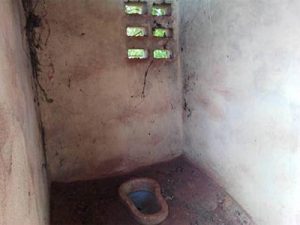
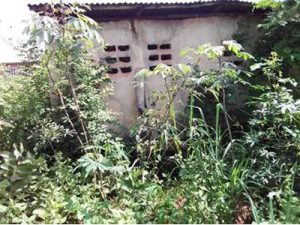
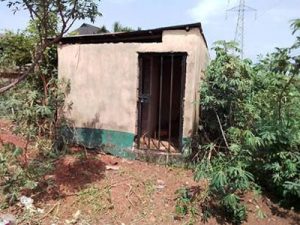
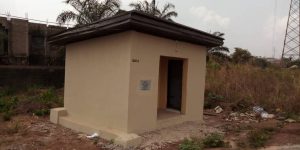
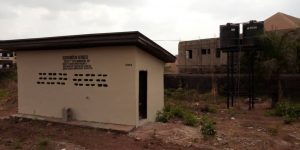
Toilet Block A Toilet Block B
At Centre for African Justice, Peace and Human Rights, we empower women who’ve migrated from their home countries to the Netherlands and are disillusioned or helpless, to the point it manifests incapacity to achieve their life/career goals. We also empower female entrepreneurs within the Netherlands who are encountering challenges setting up their small business with little or no knowledge about the Dutch Market. We achieve this by providing and connecting them with the tools that would enable them to achieve their highest potentials in life.
The objective of the women empowerment project is therefore, to re-kindle the spirit of excellence in the minds of such women through: Capacity-Building and Empowerment to achieve sustainable business developments and Peace-building. Through these means, we hope to pull up women who have low self-esteem, inferiority-complex, into entrepreneurship and are generally helpless in their present location
outside their home countries.
Our Research has shown that migration whether positive or negative has side effects on women. Many female migrants and refugees are exposed to unspeakable challenges; some of them have become victims of identity crisis, sexual and domestic abuse. No doubt, these dwindles their chances of having a successful career and a fulfilled life. In the same vein, lack of mentorship, information, modelling, coaching and motivation in the face of these challenges has caused women residing in foreign lands to drop out of school, go into drugs or alcohol, give into trauma, depression and other forms of mental or psychological situations.
Bearing in mind that these women need our support, we are creating platforms where they are reminded that no matter what they have been through in life, there is always light at the end of the tunnel. We organize events and create opportunities to enable them become exposed to diverse information and tools aimed at helping them to achieve their highest potentials in life, despite their previous or present circumstance.
The unique method employed by Centre for African Justice in reaching out to broken women is the use of women to empower women. We believe that there are many reasons why women are in a better position to empower, motivate and lift up other women. Based on this, we use very successful and influential African Women as tools for motivating and coaching younger ones to keep focus and achieve
their dream fulfilled lives.
We also organize workshops / training programs for the empowerment and capacity building of women especially in the domain of entrepreneurship. Through this, we hope to enhance economic growth and strengthen the sustainability of development initiatives undertaken by female entrepreneurs.
Our Women Empowerment Project as an instrument of Peace Building:
This project also aims at grooming young women to become agents of peace in the society. As Peace is the foundation of every society, we use our Women Empowerment Project as an avenue to empower young African women to become instruments/agents of peace in the society while striving to achieve their highest potentials in life. At our events, women are trained to perform impressive roles as peace builders and peace keepers for the benefit of their immediate society and the world at large. Contact Centre for African Justice for more information about this project.

Name: Cynthia Ngozi Kamara-Njoku.
Position: Project Manager
Phone Number: +31686171859
Email Address: ngozi@centreforafricanjustice.org
Office Address: Laan van Meerdervoort 70, 2517AN The Hague, The Netherlands

Name: Jason Chang
Position: Assistant Project Manager.
Phone Number: +31686171859
Email Address: jason@centreforafricanjustice.org
Office Address: Laan van Meerdervoort 70, 2517AN The Hague, The Netherlands
We also
◆ Engage in dialogues for Human Rights in Africa
◆ Engage in dialogues for Peace in Africa
◆ Engage in dialogues for Justice in Africa
Through the support of our sponsors and volunteers, we conduct trainings, create awareness, organise campaigns and educate people on matters pertaining to justice, peace and human rights. With the collaboration of legal experts from around the globe, we conduct legal outreach in African Countries. We promote education at the grassroots by applying for charity to sponsor projects in public primary schools. Some of the projects include sinking of water boreholes, donation of seats, books and other reading materials to the schools. We build capacity in different fields of expertise however, we go the extra mile to build capacity in Human Rights and Criminal Law
ANBI : We have an ANBI status
